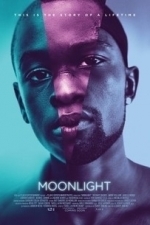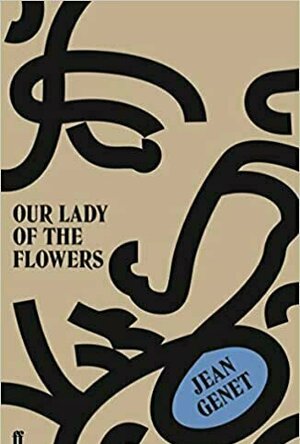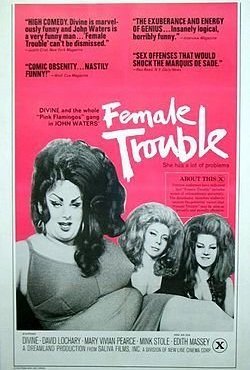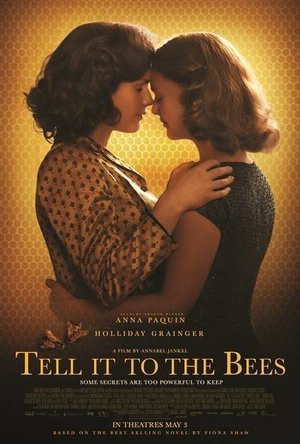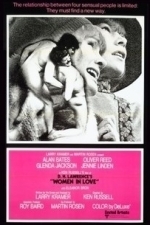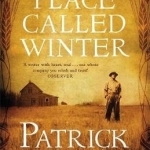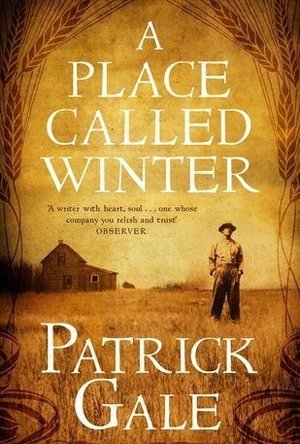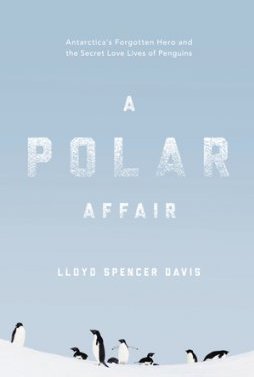Search
Search results
Suswatibasu (1703 KP) rated Moonlight (2016) in Movies
Aug 3, 2017
A rare coming of age film about poverty, race and homosexuality
A moving film finally showing homosexuality in the black community. Don't expect the sugar coating of Brokeback Mountain which seems like The Sound of Music in comparison. It shows the layers of extreme difficulty living as a black man, in a poverty stricken area, surrounded by peers who think one way, and attempting to break free from a drug fuelled mother and the dealers around her. It's visually beautiful and the quiet dialogue highlights the protagonist's wonderful acting.
Edmund White recommended Our Lady of the Flowers in Books (curated)
Lev Kalman recommended Female Trouble (1974) in Movies (curated)
Irene M (130 KP) rated The Rainbow Stick Boy in Books
Dec 7, 2018
Simple illustrations accompany a wonderful story about a stick boy who is born different.
While every other stick person is one colour, Huey is born rainbow coloured. The book looks at how he is treated differently, how he tries to hide what he is so he can fit in and could easily be used to help children understand MANY differences in life. I read this to see if it would help my Aspergers son to understand that being a bit different is okay, and it will be perfect for that, but could easily be used for any other physical or behavioral difference, possibly even as a way to help understand transgender and homosexuality and other "differences" to ALL ages.
While every other stick person is one colour, Huey is born rainbow coloured. The book looks at how he is treated differently, how he tries to hide what he is so he can fit in and could easily be used to help children understand MANY differences in life. I read this to see if it would help my Aspergers son to understand that being a bit different is okay, and it will be perfect for that, but could easily be used for any other physical or behavioral difference, possibly even as a way to help understand transgender and homosexuality and other "differences" to ALL ages.
Bob Mann (459 KP) rated Tell It to the Bees (2019) in Movies
Jul 23, 2019
Acting, especially by Holliday Grainger (1 more)
Sense of time and feel of the movie
A Bee Movie with a sting in the tale
It’s 1952 . Many married men have come back from the war forever changed. Life is financially tough for most families. In particular, attitudes to multi-racial relationships and (particularly) homosexuality are appalling, and never more so than in the small Scottish mill town where the film is set. The film charts a love story of two women thrown together due to a family break-up.
Full review is on One Mann's movies here - https://bob-the-movie-man.com/2019/07/16/one-manns-movies-film-review-tell-it-to-the-bees-2019/
Full review is on One Mann's movies here - https://bob-the-movie-man.com/2019/07/16/one-manns-movies-film-review-tell-it-to-the-bees-2019/
Jack Reynor recommended Women in Love (1969) in Movies (curated)
ClareR (6081 KP) rated The Good Women of China in Books
Nov 4, 2017
Eye opening
Xinran was a radio journalist in China who collected the stories of women who had stories to tell. This is a side of China that we don't really hear of: women who had lived through the cultural revolution and the damage it had inflicted on their lives. How women were still pretty much regarded as chattel, homosexuality was a criminal offence, women were sexually coerced, raped and unwillingly married off to high standing officials. This is just a small selection of the lives of women in these stories. You can hear the voices of these women as though they're in the room with you. The stories are often heartbreaking. I'm so glad I picked this book up - and all because the authors name began with an X (for an alphabet reading challenge!!).
Hazel (1853 KP) rated A Place Called Winter in Books
May 28, 2017
Loosely based on truth
This eBook was provided by the publisher via NetGalley in exchange for an honest review
Loosely based upon a true story, one of Patrick Gale’s ancestors in fact, A Place Called Winter follows the life of Harry Cane during the early 1900s. The book begins with Harry being transferred from a mental asylum to a therapeutic community called Bethel Ranch. The story then backtracks to Harry’s life as a young, nervous, motherless boy and the time he met his future wife, Winnie.
Throughout the book the reader is trying to guess the reason Harry eventually finds himself at Bethel Ranch. Gale describes Harry’s marriage, his discovery of homosexuality and his move to Canada to his final stop at a homestead in a place called Winter. Does Harry develop a mental illness or is it something to do with his scandalous desires? Or, does something else happen later in the book?
After moving to Canada, Harry does not exactly have it easy and the reader feels for him as he perseveres with his new life style. We watch him grow from a timid young man into someone with his own farm and independence. It makes it all the more upsetting to read when certain things take a turn for the worse.
In this historical novel, Patrick Gale emphasizes on the way homosexuality was regarded in society. Entire families cut people out of their lives at the slightest hint of a scandal. Gale also touches on the techniques used within mental asylums during this period as well as racial discrimination.
Occasionally, the story was difficult to read as it alternated between being really interesting and then slightly dull. Overall, regardless of how much was based on actual events, it was a good storyline, and once you have started reading you feel the need to continue to find out what happens to Harry. I have only read one other book by Patrick Gale – Notes From an Exhibition – that I struggled with a little. A Place Called Winter, however, was a lot better than I was expecting.
Loosely based upon a true story, one of Patrick Gale’s ancestors in fact, A Place Called Winter follows the life of Harry Cane during the early 1900s. The book begins with Harry being transferred from a mental asylum to a therapeutic community called Bethel Ranch. The story then backtracks to Harry’s life as a young, nervous, motherless boy and the time he met his future wife, Winnie.
Throughout the book the reader is trying to guess the reason Harry eventually finds himself at Bethel Ranch. Gale describes Harry’s marriage, his discovery of homosexuality and his move to Canada to his final stop at a homestead in a place called Winter. Does Harry develop a mental illness or is it something to do with his scandalous desires? Or, does something else happen later in the book?
After moving to Canada, Harry does not exactly have it easy and the reader feels for him as he perseveres with his new life style. We watch him grow from a timid young man into someone with his own farm and independence. It makes it all the more upsetting to read when certain things take a turn for the worse.
In this historical novel, Patrick Gale emphasizes on the way homosexuality was regarded in society. Entire families cut people out of their lives at the slightest hint of a scandal. Gale also touches on the techniques used within mental asylums during this period as well as racial discrimination.
Occasionally, the story was difficult to read as it alternated between being really interesting and then slightly dull. Overall, regardless of how much was based on actual events, it was a good storyline, and once you have started reading you feel the need to continue to find out what happens to Harry. I have only read one other book by Patrick Gale – Notes From an Exhibition – that I struggled with a little. A Place Called Winter, however, was a lot better than I was expecting.
Hazel (1853 KP) rated A Place Called Winter in Books
Dec 17, 2018
<i>This eBook was provided by the publisher via NetGalley in exchange for an honest review</i>
Loosely based upon a true story, one of Patrick Gale’s ancestors in fact, <i>A Place Called Winter</i> follows the life of Harry Cane during the early 1900s. The book begins with Harry being transferred from a mental asylum to a therapeutic community called Bethel Ranch. The story then backtracks to Harry’s life as a young, nervous, motherless boy and the time he met his future wife, Winnie.
Throughout the book the reader is trying to guess the reason Harry eventually finds himself at Bethel Ranch. Gale describes Harry’s marriage, his discovery of homosexuality and his move to Canada to his final stop at a homestead in a place called Winter. Does Harry develop a mental illness or is it something to do with his scandalous desires? Or, does something else happen later in the book?
After moving to Canada, Harry does not exactly have it easy and the reader feels for him as he perseveres with his new life style. We watch him grow from a timid young man into someone with his own farm and independence. It makes it all the more upsetting to read when certain things take a turn for the worse.
In this historical novel, Patrick Gale emphasizes on the way homosexuality was regarded in society. Entire families cut people out of their lives at the slightest hint of a scandal. Gale also touches on the techniques used within mental asylums during this period as well as racial discrimination.
Occasionally, the story was difficult to read as it alternated between being really interesting and then slightly dull. Overall, regardless of how much was based on actual events, it was a good storyline, and once you have started reading you feel the need to continue to find out what happens to Harry. I have only read one other book by Patrick Gale –<i> Notes From an Exhibition</i> – that I struggled with a little. <i>A Place Called Winter, however, was a lot better than I was expecting. </i>
Loosely based upon a true story, one of Patrick Gale’s ancestors in fact, <i>A Place Called Winter</i> follows the life of Harry Cane during the early 1900s. The book begins with Harry being transferred from a mental asylum to a therapeutic community called Bethel Ranch. The story then backtracks to Harry’s life as a young, nervous, motherless boy and the time he met his future wife, Winnie.
Throughout the book the reader is trying to guess the reason Harry eventually finds himself at Bethel Ranch. Gale describes Harry’s marriage, his discovery of homosexuality and his move to Canada to his final stop at a homestead in a place called Winter. Does Harry develop a mental illness or is it something to do with his scandalous desires? Or, does something else happen later in the book?
After moving to Canada, Harry does not exactly have it easy and the reader feels for him as he perseveres with his new life style. We watch him grow from a timid young man into someone with his own farm and independence. It makes it all the more upsetting to read when certain things take a turn for the worse.
In this historical novel, Patrick Gale emphasizes on the way homosexuality was regarded in society. Entire families cut people out of their lives at the slightest hint of a scandal. Gale also touches on the techniques used within mental asylums during this period as well as racial discrimination.
Occasionally, the story was difficult to read as it alternated between being really interesting and then slightly dull. Overall, regardless of how much was based on actual events, it was a good storyline, and once you have started reading you feel the need to continue to find out what happens to Harry. I have only read one other book by Patrick Gale –<i> Notes From an Exhibition</i> – that I struggled with a little. <i>A Place Called Winter, however, was a lot better than I was expecting. </i>
Sara Cox (1845 KP) rated A Polar Affair in Books
Aug 24, 2019 (Updated Aug 24, 2019)
Even though I'm a scientist I rarely read non-fiction for down time. But when I saw this book pop up, I thought "Penguins. Homosexuality. This sounds interesting." It's a common misconception that penguins mate for life and this book first explores this misconception. By following a number of key people who's sole mission was to be the first at the South pole, Lloyd Spencer Davis narrates finds of penguins, extreme conditions and human responses over a number to voyages. Lloyd Spencer Davis also interjects with his studies of adiele penguins and his research into the people who contributed towards the voyage and research of adiele penguin mating rituals and habits by the first ever penguin biologist, Levick. I thoroughly enjoyed this book, it was easy to read with elements of humour and some beautiful language to describe the terrain. My only criticism is that it would have been beneficial to include a map of Antartica to get a judge of distance and bearing to help visualise the journies more.
